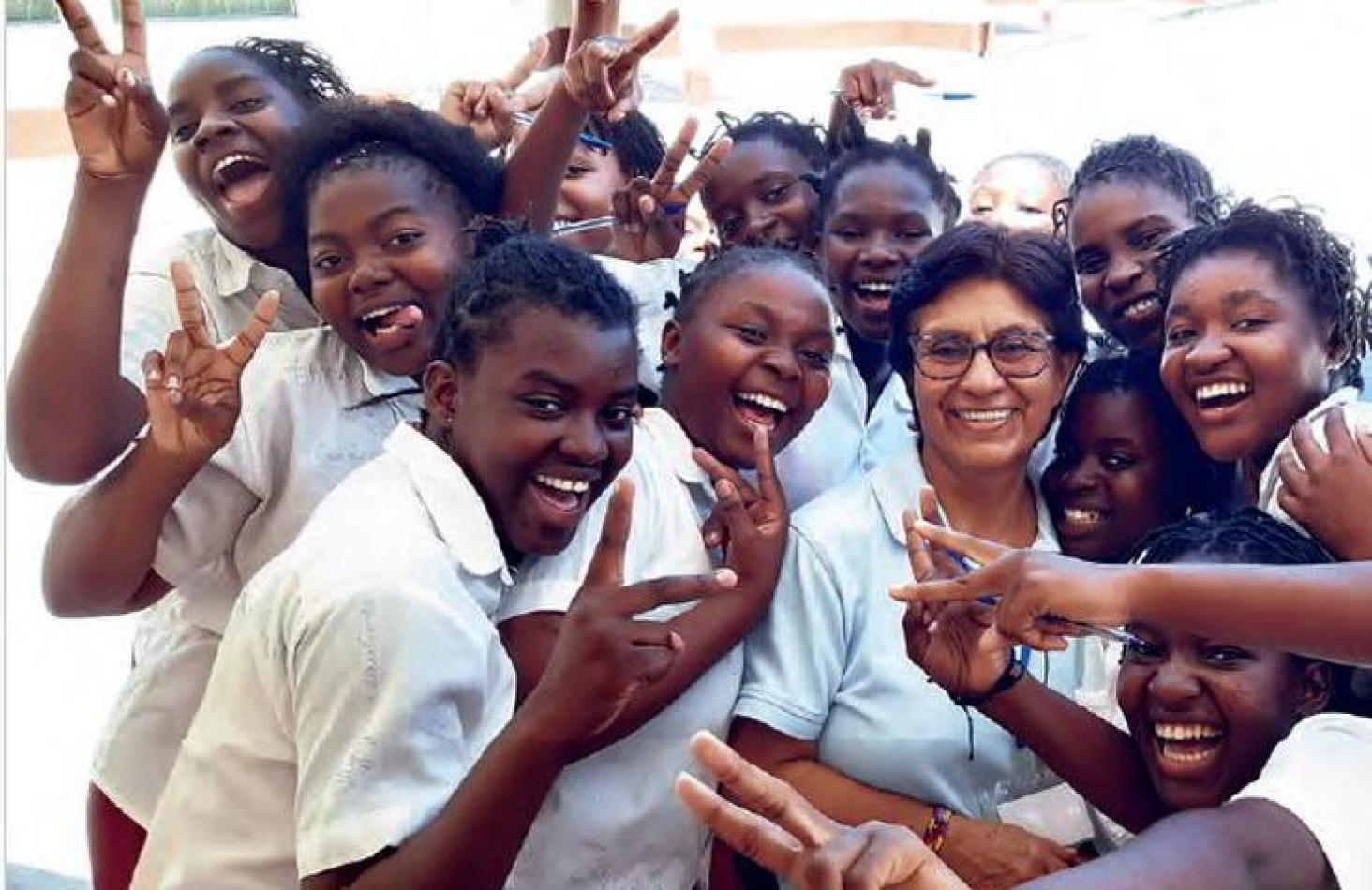Daniele Comboni
Missionari Comboniani
Area istituzionale
Altri link
Newsletter
Tuesday, July 8, 2025
The Girls’ School of Nacala is run by the Comboni Missionary Sisters and has about 300 students, mostly from the Makua ethnic group. About half of them live in the college. Sister Elizabeth Carrillo tells us about her experience at the school.
I am already at school before 7 in the morning and I greet the cooks, the young people who work in the canteen and the teachers. I ask them about the ‘ehali’, the news. It is a very beautiful habit of the Mozambican people: to know how they woke up, what is happening in their families, in their communities, in their neighbourhood or in the country.
On the way to school, I meet young people who talk to me about their work or the exams they have to take. This encourages me to start the day.
Today I met Mariza, a 16-year-old girl who is having problems at boarding school. She is rebellious, her performance has dropped, she doesn’t eat, she argues with her friends, she talks back to the teachers… She doesn’t want to talk and only cries. After many attempts, she let go and started talking to me. I don’t know the reason for her rebellion, but she is brave and wants to study and stay in school. After a long talk, she tells me that she is an orphan and that her uncle abused her. What worries her most is her little sister, who is her only family and who is in another boarding school.
Rather than solving problems, I listen, and I am surprised by so much suffering and resilience in these girls. Many of them carry within them resentment and anger for everything they have had to face in life: abuse, abandonment by their family or poverty. Although it is not easy, we Comboni Sisters support them by listening to them and looking for ways of hope together, so that they can see that there are people who care about them and encourage them to build a better future.
I teach civic education and social communication. I like it! I use stories, phrases, songs or films and I try to have a dialogue and let the girls have their say. They like it because it makes them feel like people, because at home, they are not always able to express themselves. In Mozambique, there are still places where women cannot speak and are subjected to customs and men that restrict them. One of the objectives of the school is to develop critical thinking, so we encourage their active and reflective participation.
At the end of the lessons, I visit the cooking class. It is an initiative aimed at young mothers to enable them to find a job. The Comboni Sisters offer them cooking lessons and they enjoy learning and tasting what they cook, as well as taking some home for their children. I end each day happy for the emotions experienced; I return to the Comboni community to share the news and thank God for the beauty, resilience, tenacity and goodness that we find in the Mozambican people.




